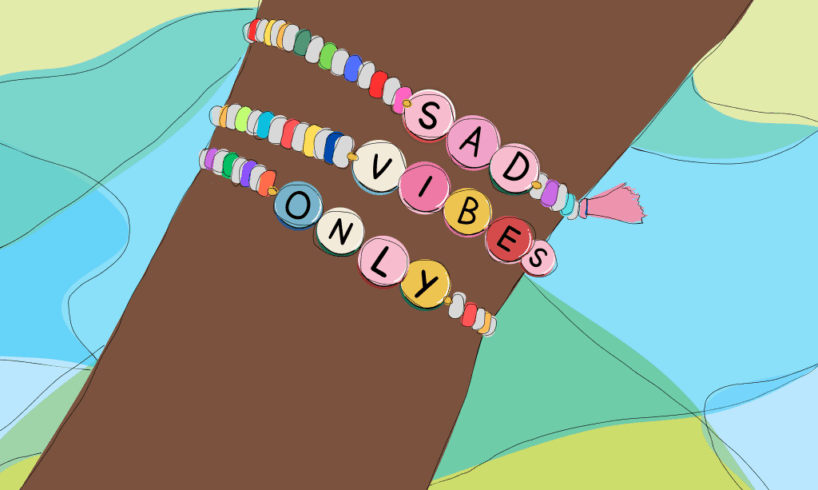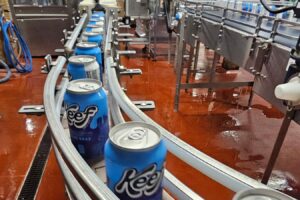
I used to hate cold weather. I spent years dreading the full stretch between September and May. I despised itchy layers, foggy glasses and early sunsets, and had blizzard nightmares year-round, even in August. But this August, as months of extreme heat in southern Ontario finally ease off, it’s the sun I once longed for that has me depressed.
This summer has been a bummer. All of my family’s regular camping and cottage trips were marked by the warming world. On one, oppressive heat made sleeping impossible. On another, a friend found a tick — an increasingly common pest that can carry disease — on his kid. A fire ban has taken roasted marshmallows off the menu of a third trip, but at least it’s going ahead now that a wildfire in the Kawartha Lakes is under control. As the smoke travelled over to my home in Toronto, I wondered whether a good parent would send their child to the couch instead of an outdoor camp, a question I’ve asked myself before.
There’s no escaping the fact that my once-favourite season has become a health hazard. I tried to stay grateful navigating it all, given what others are facing. From Vancouver Island, B.C., to Annapolis County, N.S., one community after another faced wildfire evacuations this summer — at least 12,000 households in Manitoba alone. Meanwhile, I still got to swim in three Great Lakes: Huron, Ontario and Erie, the last full of waves that had my kid shrieking with delight.
A sign in St. Laurent, Man., in July 2021. This summer, the province has again seen serious drought, as well as thousands of people evacuated due to wildfire. Photo: Aaron Vincent Elkaim / The Narwhal
Summers in Canada are on track to be even less fun — hotter, smokier, more dangerous — unless we do something about it. I’m grateful that every day, people across Canada and globally are working to turn this nightmare around. Many are dreaming of a world where our great-grandchildren can have summers that feel carefree again, even if today’s kids have to check the lake for toxic blue-green algae before diving in. The sadness that brings is inescapable, but lately I’ve been thinking it’s time to push it aside and tap into anger instead.
In Juice, novelist Tim Winton focuses his rage on the architects of climate change
In May, it was already 30 C in Calgary, where Narwhal reporter Drew Anderson lives. As we discussed the inaccuracy of calling any temperature “unseasonable” anymore, Drew mentioned his obsession with the novel Juice, by the Australian author Tim Winton. It’s a futuristic climate dystopia, which I wouldn’t usually read given how much time I already spend staring into that particular abyss. Drew insisted that’s exactly why Juice would be cathartic.
Travis George, a natural resource technician with Tsleil-Waututh Nation, rests on a research vessel in 2022, wearing a mask because of wildfire smoke. Photo: Kayla MacInnis / The Narwhal.
The book’s narrator has always lived on a sweltering planet, where the only way to survive summer is to stay underground in the dark. Yet Winton’s anti-hero isn’t initially despairing. Like any child, he experiences his life as normal, because it’s all he knows. Then, as a young adult, his worldview shatters. He learns that the world used to be different — greener, bluer, cooler, friendlier — and that fossil fuel barons knowingly destroyed it.
He also learns their descendants live in hidden luxury, scattered across secret, air-conditioned bunkers in the farthest reaches of the burning planet. As his disbelief turns to fury, he’s offered a chance at revenge. The invite is to join a secretive force that roots out the progeny of those who ruined life for everyone else — and kills them.
Drew was right. Winton’s fictional assassinations were a satisfying emotional release. The author called the novel an outlet for his “grief and rage” and the nightmare he paints is one I share. In Juice, there are barely any plants or wildlife. There’s barely any society, just individuals and small families eking out survival, their skin scarred from third-degree sunburns. As they march through deserts to find their targets, the vigilantes keep their energy up by chanting the names of the corporations that built fortunes big enough to allow generations to hide from accountability: “Aramco, Gazprom, Exxon!”
A sign warns swimmers away from a tributary of Lake Superior. Northern Ontario waterways like this one used to remain cold enough to prevent the growth of blue-green algae blooms. As the climate warms, that’s no longer the case. Photo: Chris McEvoy / The Narwhal
All stifling summer, I’ve been thinking about that laser-sharp focus. Oil and gas executives are not now, and have never been, unaware they are actively victimizing billions of people. The bunkers Winton imagines are not imaginary: those that profit off of human suffering are well aware it pisses people off, so much that alleged CEO assassin Luigi Mangione became a heartthrob outlaw last year. Celebrating death is ugly, but so is purposefully ignoring it. British Columbia saw at least 600 deaths linked to extreme heat in 2021 alone. If we know the cause yet don’t prevent it, that sounds a bit like murder, too.
Climate action for everyone: start talking about it
As billionaires prepare for a boiling planet, the rest of us have to as well. That starts with acknowledging that global warming is here, now, already stealing our chances to enjoy the natural beauty Canada says it’s so proud of. We have to adapt quickly and fairly. We have to work hard to make it stop.
Time and again, polls show the majority of people in this country want climate action. Yes, there are real differences of opinion about what those actions should be. That means there’s a way for everyone to join in — step one, as atmospheric scientist Katharine Hayhoe says, is to actually start talking to each other about the reality of what we’re all experiencing.
If we spoke our fears out loud, we’d overcome how isolated they make us. We’d also realize there’s a lot of agreement about what to do. For example: most people agree that companies should shell out to clean up their own mess, whether abandoned oil and gas wells on farmlands or all the carbon in the sky. Climate change is expensive enough, so it’s confusing why governments make taxpayers subsidize that cleanup while businesses prioritize multimillion-dollar salaries ahead of desperately needed changes their customers are actively asking for. I have heard enough about fiduciary duties to shareholders — those are pretend, while our moral duty to other human beings is real.
How silly it was of me to resent winter. How ignorant, to dismiss nature’s need to quietly regenerate, to incubate seeds for the plants that clean the air and build up the snowpack that used to stave off drought. By the time I became determined to appreciate snowy days, they began to disappear. Now, the root of my winter sadness is that it isn’t cold or wet enough.
But I’m also trying to take a cue from the fires burning across the whole wide world: they’re raging and maybe we should be, too. If anger doesn’t drive you, then try love — for all the living beings on our wounded, beautiful home.





